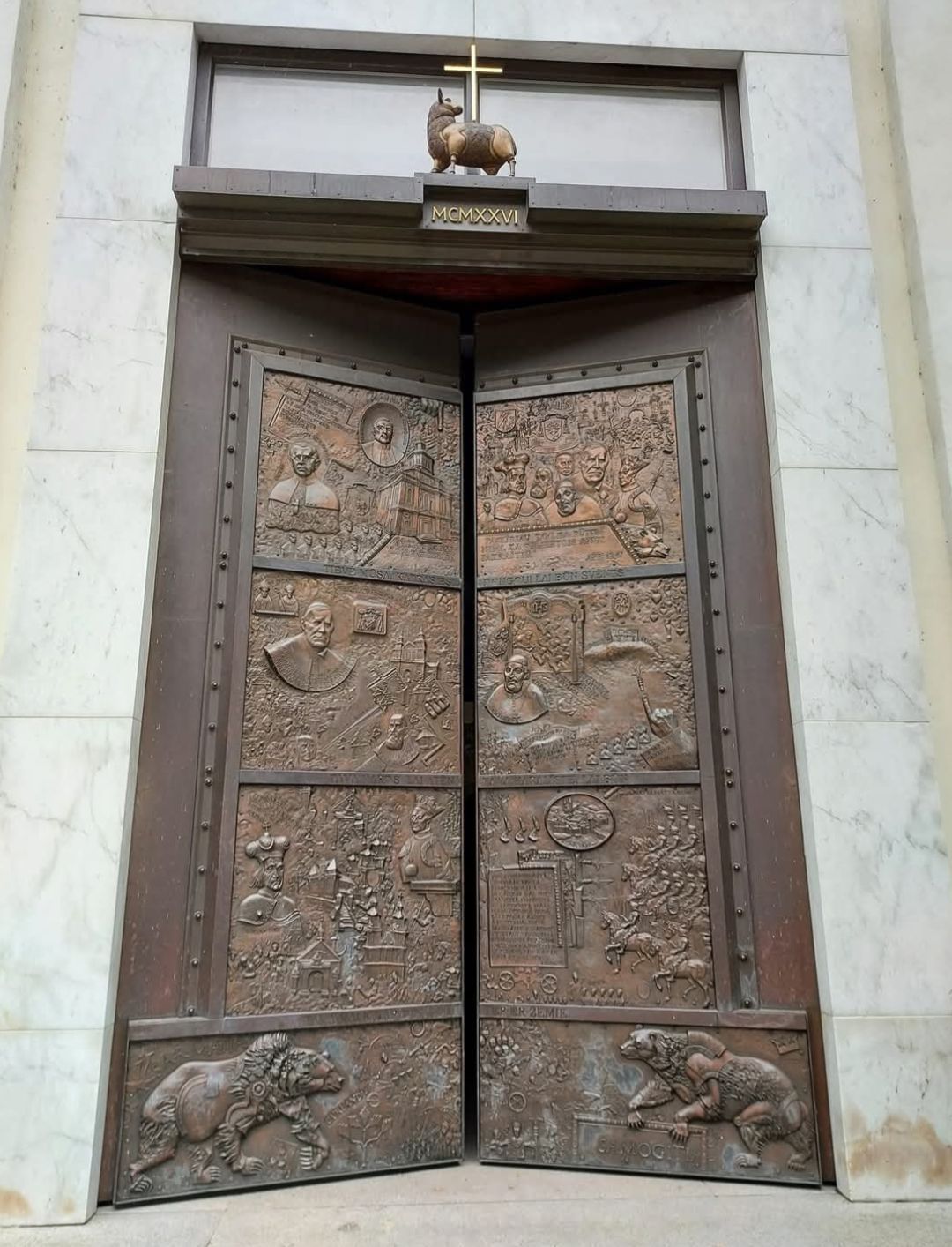Scripture Menu
2 Kings 2:23-24
[From Jericho, Elisha] went up from there to Bethel, and while he was going up on the way, some small boys came out of the city and jeered at him, saying, “Go up, you baldhead! Go up, you baldhead!” And he turned around, and when he saw them, he cursed them in the name of the LORD. And two she-bears came out of the woods and tore forty-two of the boys.
Matthew 12:30-32
Whoever is not with me is against me, and whoever does not gather with me scatters. Therefore, I tell you, every sin and blasphemy will be forgiven people, but the blasphemy against the Spirit will not be forgiven. And whoever speaks a word against the Son of Man will be forgiven, but whoever speaks against the Holy Spirit will not be forgiven, either in this age or in the age to come.
Cogitations—
These two verses in 2 Kings 2 may be the most shocking in the Old Testament. Elisha, the prophet whom I have been presenting as the precursor (pun intended) to the Lord Jesus Christ, entering Bethel, and a group of forty-two boys serenading with a jeer to the prophet. And instead of adulting, the Man of God gets angry and curses the juvenile delinquent punks. Two she-bears come down from the hills and make fleshly linguini of kid flesh. Kids! How gratuitous! So Old Testament! Scandalous!
This story has racked both ancient and modern interpreters. Numerous possibilities have been proffered for what went down there. But for the most part, no one comes close to fully absolving Elisha for his perceived tempestuous melt-down.
My own take on this episode is more charitable, and I think, makes theological sense of the passage. Bethel was the holy place where Jacob saw his “ladder” reaching up to heaven (Gen. 28), with angels going up and down on it. It was here he received God’s covenant promise, making he and his seed the successor to Abraham and Isaac. But later under Jeroboam, this holy ground became polluted with one of the two golden calves. At the time of Elisha, this faux temple would still have been operational. The flavor of this place was a potpourri of cafeteria religion.
The “boys” are a good fit in this place of apostasy. More to the point, these “young lads” are likely not children. Solomon, upon ascending his father’s throne referred to himself as “a little child,” but we know he was probably close to forty at the time. Rehoboam, when he took counsel with his young cohorts at the time of his own ascension, was in his forties, as well. I believe these “boys” from Bethel were adults, and the “boy” label is a sarcastic jab intended to accent their immaturity and waywardness.
There were forty-two of them, and I find that number significant because as King Ahab’s line is finally judged and wiped out by Jehu in 2 Kings 10:14, there are “forty-two” of them left who are executed. Forty-two, I believe, then serves as a symbolic number of judgment. (Numbers in Scripture are far more literary than they are in our modern logistical use of them.)
But the steepest challenge to this passage is squaring this cursing with the kinder, gentler reputation of the prophet Elisha. How could Elisha do such a thing? He was the Jesus Trail Blazer! He brought life, not death. To this, I would suggest he surely did. However, salvation is always and ever a two-edged sword. Jesus himself spoke often of both salvation and judgment. Jesus spoke of hell many times, as well. There is the Gospel passage spotlighted here in Matthew 12:30-32— often curiously referred to as “the unpardonable sin” teaching.
Jesus said, “Whoever is not with me is against me, and whoever does not gather with me scatters.” Then he launches into a stark reality: “Therefore I tell you, every sin and blasphemy will be forgiven people, but the blasphemy against the Spirit will not be forgiven. And whoever speaks a word against the Son of Man will be forgiven, but whoever speaks against the Holy Spirit will not be forgiven, either in this age or in the age to come.” There is, Jesus suggests, a sin that cannot be forgiven.
But here, I must say, Jesus doesn’t have a specific sin in mind. It is, I’m convinced, a heart that rejects the salvation he graciously offers. The “unpardonable sin” is hardened unbelief. A rejection– whether passive or aggressive– of God’s provision in the Lord Jesus Christ. Apostasy, even. Provision is made for reconciliation and restoration, but the unbelieving heart says, “Thanks, but no thanks.” Sometimes, in this spirit, people condescendingly offer brush-off declarations like, “I’m just not religious.” God is willing that none should perish, but many people are in the final analysis, too willing to perish.
The “boys” jeering Elisha, calling him "old baldhead,” are representative of this mindset. They aren’t mocking his physically bald head but likely referring to the fact that he is not Elijah, who wore the authoritative hairy mantle of a prophet. Elisha, they imply, is a pretender. He wasn’t the real deal. Their mocking was a vocational jab of unbelief. And they were indeed judged for the lack thereof. Elisha was the bringer of Good News. But not all believed, as it was even in Jesus’ day. (I do seem to remember a time when Jesus went to the Temple courts and was not pleased with the “faith” expressions represented there.)
I found the picture posted below. It is of a cathedral in Lithuania. Please notice at the bottom of the two doors— there are two she-bears! Right there at the entrance! I think the symbolism here is harkening back to the outskirts of Bethel. The price of unbelief and rejection is right there at the door! One can either enter through the doors; or take their chances, bearing the consequences.

Art (above, inset) The Prophet Elijah Curses the Children Who Mocked Him by Willem van den Bundel (17th c.)


